Publications
Articles, publications, books, tools and multimedia features from the U.S. Institute of Peace provide the latest news, analysis, research findings, practitioner guides and reports, all related to the conflict zones and issues that are at the center of the Institute’s work to prevent and reduce violent conflict.
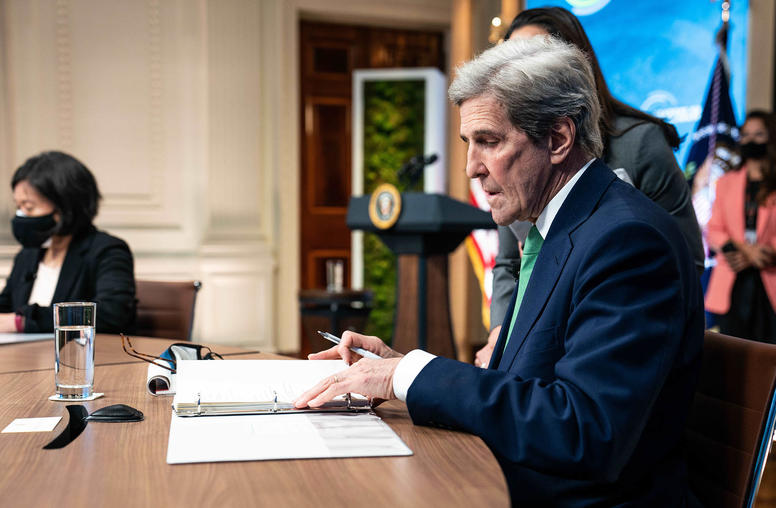
What Does John Kerry’s Visit Mean for U.S.-China Climate Cooperation?
This week, U.S. Special Envoy on Climate Change John Kerry spent four days in China in the hopes of facilitating a thaw in U.S.-China climate cooperation and easing tensions between Washington and Beijing more broadly. While the talks did not yield any major breakthroughs, any progress toward a shared climate agenda cannot be taken for granted after nearly two years of frozen relations. And with Kerry announcing plans for more bilateral talks ahead of the next round of U.N. climate negotiations in November, it appears that climate change may offer a tentative path for rebuilding trust between the two world powers.
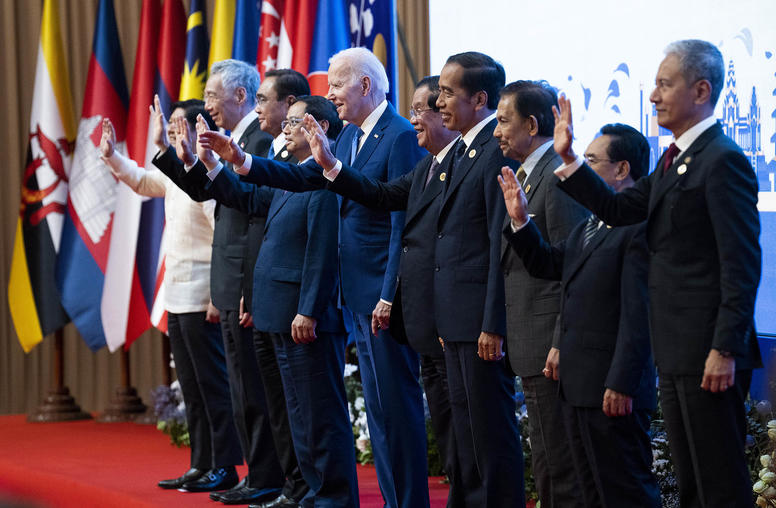
Four Takeaways from the ASEAN Summit
Foreign ministers from the Association of Southeast Asian Nations (ASEAN) gathered last week in Jakarta, with a range of critical challenges to address. Chief among those issues was the crisis in member state Myanmar, which the bloc is divided on how to approach. China’s aggressive activities in the South China Sea were also a key topic at the summit, with Beijing and ASEAN pledging to reach an agreement on a long-stalled non-binding code of conduct.

Russia Expands Its War on Ukraine — to Global Food Supplies
Russia’s Vladimir Putin has again made his invasion of Ukraine an effective war on global food supplies. Having scuttled the year-old deal to allow grain exports via the Black Sea, Putin is attacking Ukraine’s ports to cripple the ability of a major food grower to supply world markets. These actions immediately increased grain prices, holding the world’s poorest people hostage to Moscow’s demands. Putin’s new belligerence is likely to damage his efforts to build political support from China and the Global South. The United States should lead efforts to hold Russia accountable for any new hunger crises from these acts, and to press Putin to reverse this course.
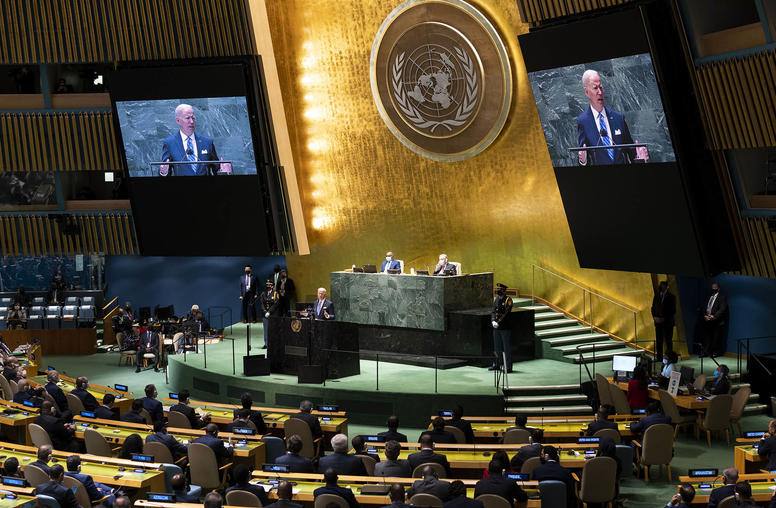
In Competition with China, the U.S. Should Double Down on Multilateralism
Against the backdrop of renewed great power competition and an emerging multipolar world, it is crucial that the United States prioritize its engagement within multilateral institutions, including those in the United Nations system. As China looks to supplant the U.S.-led rules-based order, Washington should foster better relations with developing nations and emerging powers, particularly those in the Global South. Even as the U.S.-China rivalry intensifies, Washington should avoid putting countries in a position where they must make zero-sum choices. How can Washington do this?

Great Power Competition Implications in Africa: The Russian Federation and its Proxies
Joseph Sany, vice president of the Africa Center at the U.S. Institute of Peace, testified on July 18, 2023, before the U.S. House Committee on Foreign Affairs Subcommittee on Africa's hearing on "Great Power Competition Implications in Africa: The Russian Federation and its Proxies."

Andrew Cheatham on the Resurgence of the Nonaligned Movement
Rather than reinforce the Nonaligned Movement’s perception of a zero-sum choice between the U.S. and other great powers like China, the U.S. should work with allies to offer “a bigger package that helps serve the people and is ultimately more sustainable than what China has to offer,” says USIP’s Andrew Cheatham.
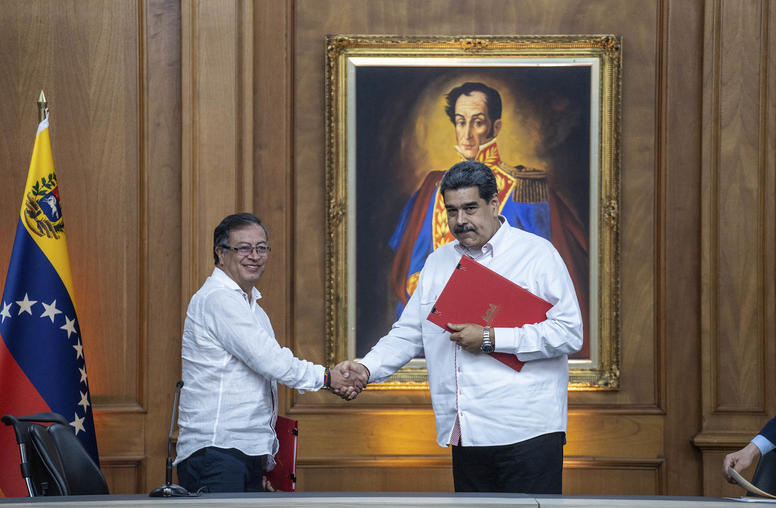
Brazil and Colombia Need to Step Up on Venezuela’s Crisis
Developments in Venezuela over the past few weeks have provided reason for both deep pessimism and guarded hope that the country’s presidential election next year could help resolve its political crisis and advance a democratic transition.
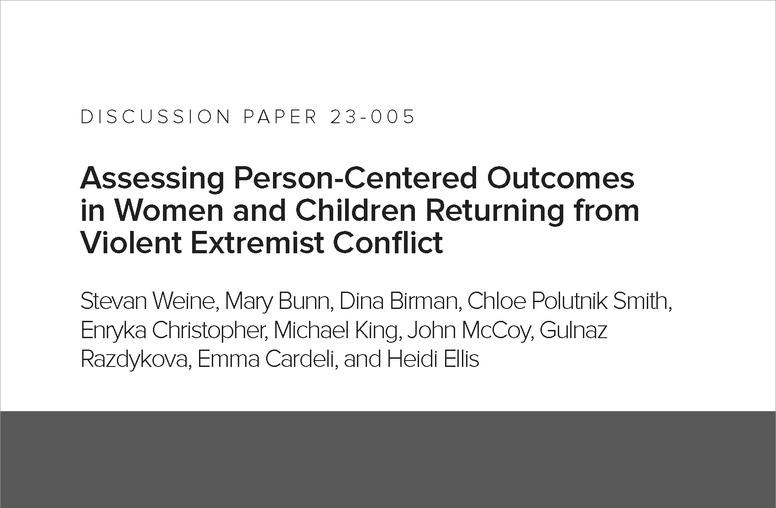
Assessing Person-Centered Outcomes in Women and Children Returning from Violent Extremist Conflict
This paper outlines a person-centered approach to outcomes based upon existing evidence and practice knowledge for use with returning women and children in rehabilitation and reintegration (R&R) programs. Being able to identify and assess outcomes, which are the intended accomplishments of these programs, are key for understanding change processes and developing strong programs. These programs should be able to assess and track key outcomes at multiple levels, including individual, family, community, and systems. However, little guidance currently exists regarding strategies for what outcomes should be assessed and how to do so.
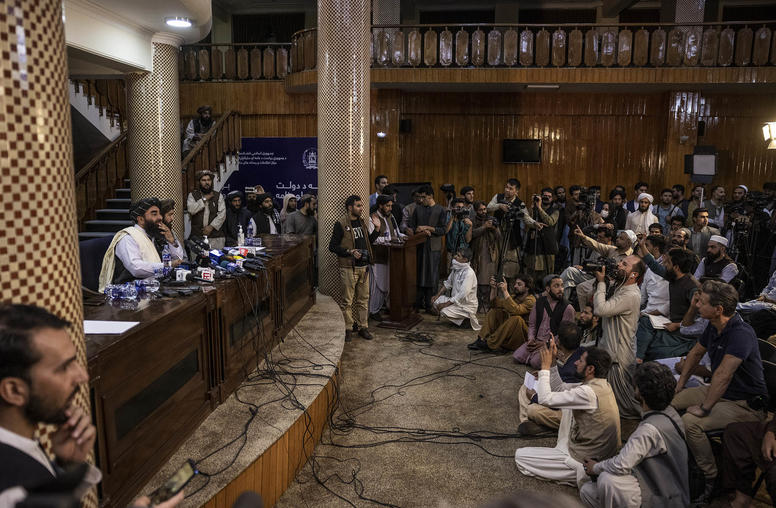
What the Taliban’s Defensive Public Messaging Reveals
In the nearly two years since the Taliban’s takeover, much of the Afghan population continues to struggle to meet basic daily needs amid a severe humanitarian crisis. The Taliban have imposed a raft of draconian restrictions on Afghan women and girls, effectively erasing them from public life. Yet, in a recent public address, the Taliban’s supreme leader, the emir Sheikh Haibatullah Akhundzada, claimed his government has provided Afghan women with a “comfortable and prosperous life.”
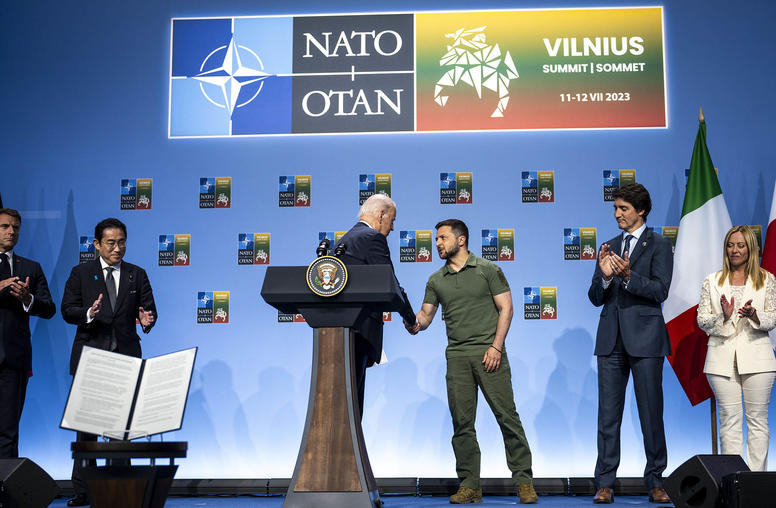
The NATO Summit: Three Takeaways for Europe, War and Peace
This week’s NATO summit conference wrought significant advantages for Ukraine in its fight for independence, and on behalf of Europe’s security. Ukraine and most NATO members sought an unconditional invitation for Ukraine to join the NATO alliance following its war with Russia. They achieved part of that goal — a shorter, clearer path to Ukraine’s membership, USIP analysts note. Turkey’s reversal, to support Sweden’s accession to the alliance, strengthens the community backing the Ukrainians’ self-defense. While the summit had no prospect of lightening the burdens of defending Ukraine, Europe and the international rule of law, it accomplished what was achievable in the moment.